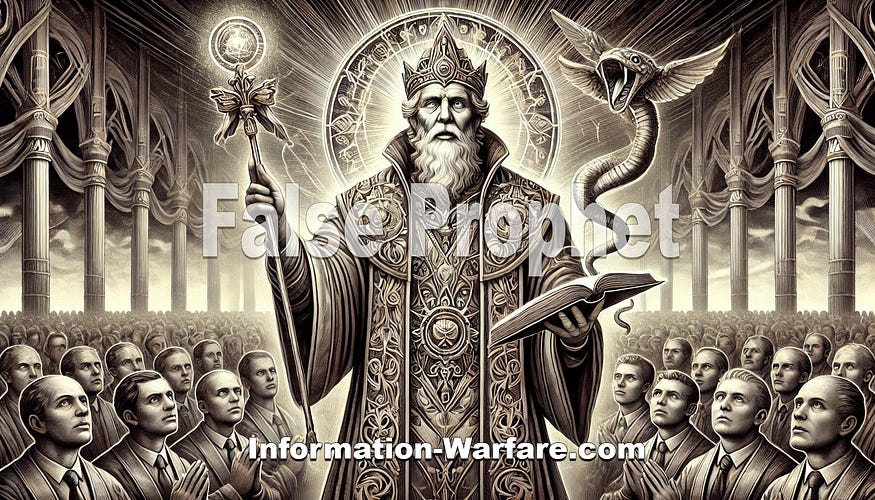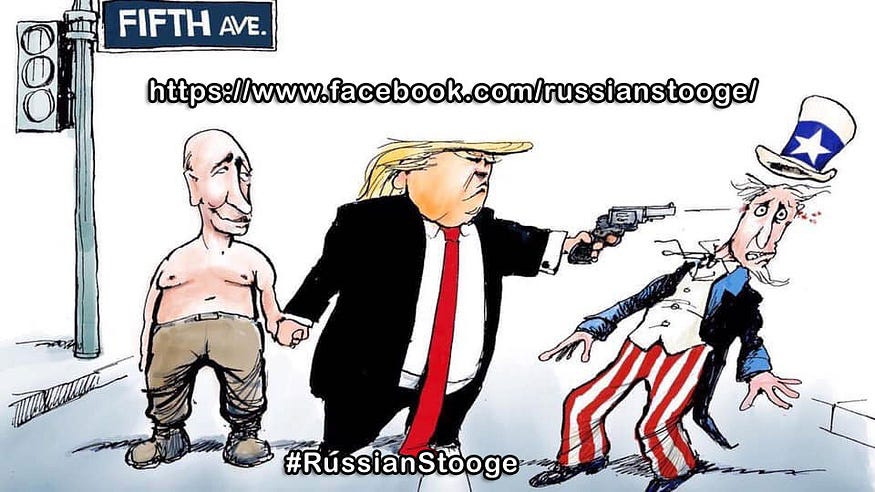Trump: The Enemy From Within
Unraveling the Influence and Impact of Trump’s Followers In The Information War

Introduction
U.S. President Donald Trump’s behavior, often described as unprecedented, has dominated the news for nearly four years. However, his cult of personality, while alarming, is not without historical precedent. This context actually heightens concerns rather than alleviating them, as history shows that such dynamics can lead to significant societal and political instability. Understanding the historical parallels helps in grasping the potential long-term impacts of Trump’s influence on American democracy.
Donald Trump’s presidency and subsequent influence have been marked by unprecedented levels of political polarization, disinformation, and attacks on democratic institutions. While some view Trump as a populist leader who challenged the status quo, others see him as an enemy from within, whose actions and rhetoric have significantly undermined the foundations of American democracy. This article explores how Trump, with the support of his followers — both witting and unwitting — has eroded democratic norms and exacerbated societal divisions.
The Rise of Trump and the Cult of Personality
Donald Trump’s rise to political prominence was fueled by a unique blend of celebrity appeal, media savvy, and populist rhetoric. His ability to connect with a significant segment of the American population, particularly those feeling disenfranchised by the political elite, was a key factor in his ascent. However, this connection also facilitated the creation of a personality cult that placed Trump above traditional political scrutiny and accountability.
Populist Appeal: Trump’s messaging resonated with many Americans who felt left behind by globalization and economic change. His promises to “drain the swamp” and prioritize “America First” policies struck a chord with voters seeking radical change.
Media Mastery: Trump’s adept use of social media, particularly Twitter, allowed him to bypass traditional media channels and communicate directly with his base. This unfiltered access helped solidify his influence and control over public discourse.
The Enemy From Within:
Erosion of Democratic Norms
Throughout his presidency and beyond, Trump engaged in behaviors and promoted ideologies that directly challenged the principles of democracy. These actions, often supported by his followers, have had lasting impacts on the political landscape.
Attacks on the Press: Trump frequently labeled the media as “the enemy of the people,” undermining trust in journalism and promoting the idea that only his narrative could be trusted. This rhetoric has contributed to widespread skepticism and polarization.
Undermining the Electoral Process: Claims of widespread voter fraud and the refusal to concede defeat in the 2020 presidential election eroded public confidence in the electoral system. The January 6th Capitol insurrection was a direct result of these unfounded claims.
Disregard for Rule of Law: Trump’s repeated interference with judicial processes and attempts to use the Department of Justice for personal and political gain further weakened the integrity of democratic institutions.
The Role of Trump Followers: Witting and Unwitting Accomplices
Trump’s influence would not have been as pervasive without the support of his followers, who can be categorized into witting and unwitting accomplices.
Witting Accomplices:
These are individuals who knowingly support Trump’s actions and rhetoric, often because they align with their own political or personal beliefs.
This group includes:
Political Allies: Members of Congress and other political figures who supported Trump’s policies and echoed his claims of election fraud.
Media Personalities: Commentators and journalists who perpetuated Trump’s narratives on conservative media outlets, reinforcing his message to a broader audience.
Activist Groups: Organizations and movements that rallied behind Trump’s causes, organizing events and spreading his rhetoric through grassroots campaigns.
Unwitting Accomplices:
These individuals may not fully grasp the implications of their support for Trump or the extent to which they are propagating misinformation.
This group includes:
Average Voters: Citizens who voted for Trump out of frustration with the status quo or belief in his promises, without fully understanding the potential consequences of his actions.
Social Media Users: Individuals who shared and promoted Trump’s posts and conspiracy theories without critical evaluation, thereby amplifying misinformation.
The Consequences: A Divided Nation
The impact of Trump’s presidency and his followers’ actions has led to a deeply divided America.
The consequences of this division are profound and far-reaching:
Political Polarization: The gap between political parties has widened, making bipartisan cooperation increasingly difficult. This polarization hampers effective governance and fosters a toxic political environment.
Erosion of Trust: Trust in democratic institutions, the media, and even fellow citizens has been significantly eroded. This lack of trust undermines social cohesion and the ability to address collective challenges.
Normalization of Extremism: The acceptance and normalization of extremist views and actions, exemplified by the January 6th Capitol riot, pose a serious threat to the rule of law and democratic stability.
The Impact of Trump’s Anti-American Rhetoric on Russian Geopolitical Standing
Since Donald Trump entered the American political scene with his divisive and often anti-American rhetoric, Vladimir Putin’s and Russia’s geopolitical standing have notably improved. Trump’s criticisms of NATO, along with his administration’s isolationist policies, have contributed to weakening Western alliances. This shift has allowed Russia to form new alliances and strengthen existing ones with countries like China and Turkey, aimed at countering NATO’s influence. Consequently, Russia’s strategic position on the global stage has been bolstered, challenging the traditional Western-led international order.
Increased Russian Global Influence
NATO Undermined: Trump’s rhetoric questioning NATO’s relevance and his administration’s inconsistent commitment have sown doubts among allies, weakening the alliance’s cohesion.
New Alliances: Russia has capitalized on these divisions by forging closer ties with countries opposed to Western influence, such as North Korea, China and Iran.
Strategic Gains: Russia’s interventions in Syria and its influence in Eastern Europe have been strengthened, partly due to perceived disunity and retreat of Western powers.
Conclusion
Trump’s approach has inadvertently empowered Russia, allowing Putin to exploit the resulting geopolitical vacuum to Russia’s advantage. This shift underscores the importance of cohesive and consistent foreign policy in maintaining global stability and countering authoritarian influence.
Donald Trump’s tenure as President and his continued influence have revealed and exacerbated underlying fractures in American society. By positioning himself as an enemy from within, Trump has challenged democratic norms and institutions, with the support of both witting and unwitting accomplices. The task ahead for America is to rebuild trust, bridge divisions, and reaffirm its commitment to democratic principles. Only by addressing the root causes of this political upheaval can the nation hope to heal and move forward.



